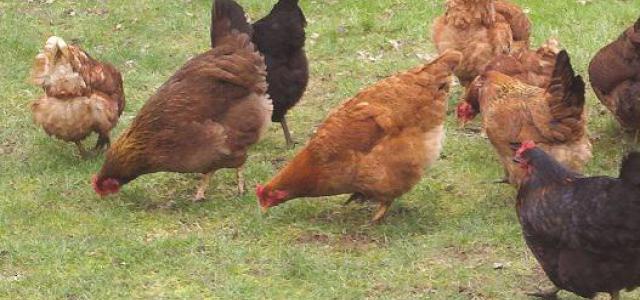Commercial indigenous chicken farmers for a long time have thought that keeping these type of chicken on free range is just enough. They therefore avoid taking care of them properly and still expect good earnings from them. This is not recommended. Generally chicken require good feeding, housing, protection against diseases and predators in order to give good return.

Indigenous chicken. Just like any other breed they should be vaccinated against the most common diseases such as fowl pox, Newcastle, Mareks and coccidiosis diseases. Photo:theorganicfarmer
Indigenous chicken have over time proved to be more profitable both in their meat and eggs as compared to hybrid types and any farmer keen to make more money out of them should go an extra mile just from free range.
Housing: A good chicken house should protect the chickens from the cold and wind and keep away predators such the mongoose, dogs, wild cats or snakes.
The house should be spacious enough to reduce congestion, which causes stress in chickens and even cannibalism and pecking. Ideally, each chicken requires at least 2 square feet of space. In this 100% more floor space is fine.
If space allows, ensure that you leave an open area where the chickens can be released in the evenings (this is called a chicken run) where they can run, pick insects and eat vegetative matter such as grasses and plant vegetables such as kales. This should also take care of ventilation for natural breeze.
RELATED ARTICLE: KALRO unveils super-yield indigenous chicken
RELATED ARTICLE: Aloe vera keeps off poultry diseases
RELATED ARTICLE: Research firm offers training to poultry farmers
A chicken house should also be constructed facing East to West direction to reduce wind or draft that can affect chickens.
Feeding: A laying hen for example requires 122g of feed every day for good production of eggs. Similarly a chick requires at least 30g of feed per day to grow well.
“Chickens should be provided with clean water at all times for food transport to all parts of the body and to maintain their health. Farmers can also add 2 or 3 teaspoonfuls of EM1 and Aloe Vera solution in the water to improve digestion and provide immunity from diseases,” said Mr. Ochieng’ Ouko, poultry research assistant- KALRO
Disease control: Poultry farmers should keep eye on their chicken for any sickness. They should ensure that all the chickens are vaccinated against the most common diseases such as fowl pox, Newcastle, Mareks and coccidiosis diseases. Diseases make chickens weak and retard their growth, feed conversion, egg production and eventaully reduce the good returns that farmers desire.
















Comments powered by CComment